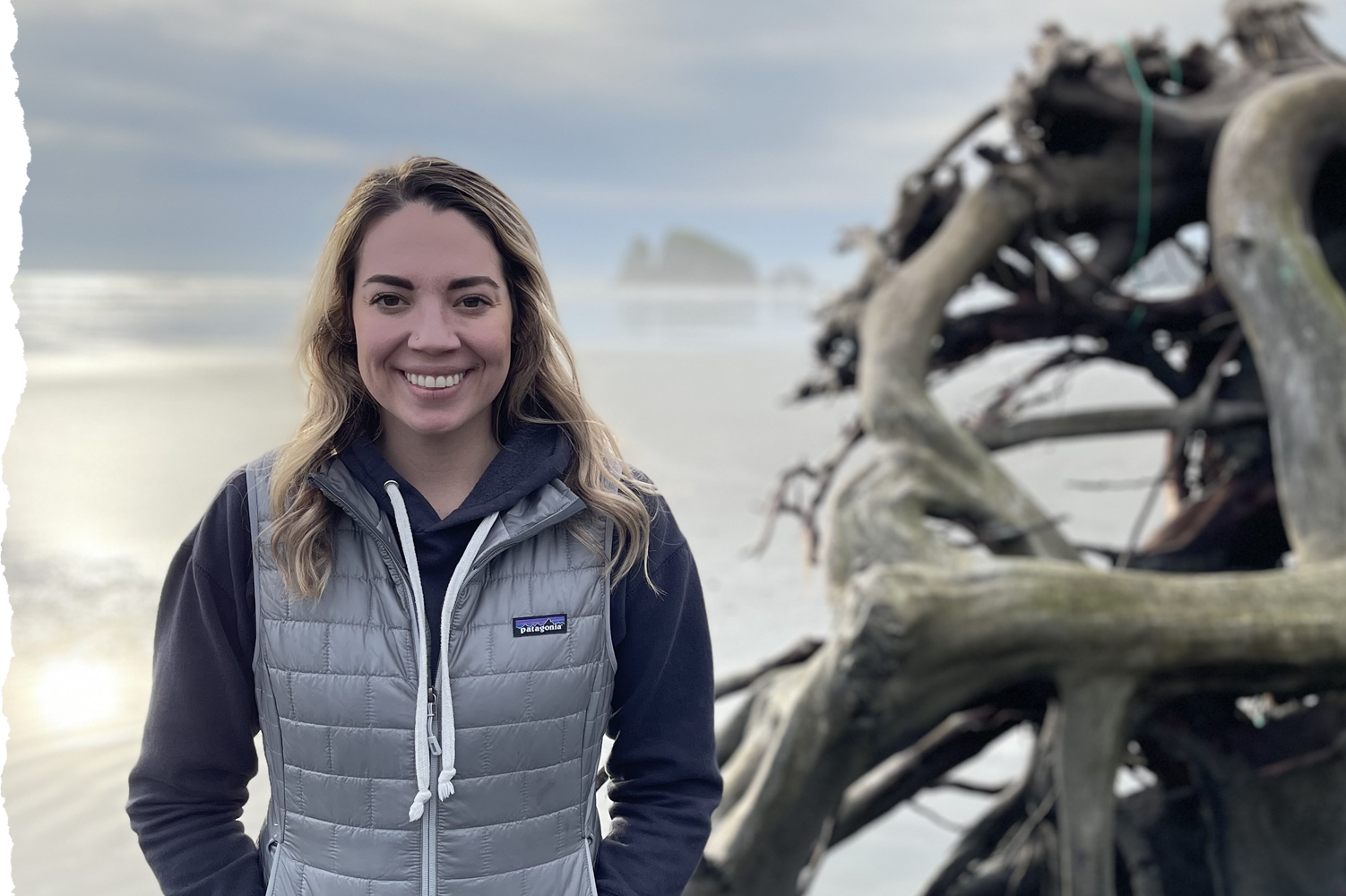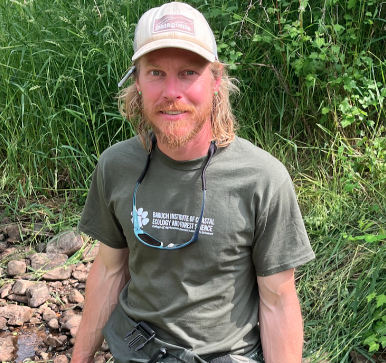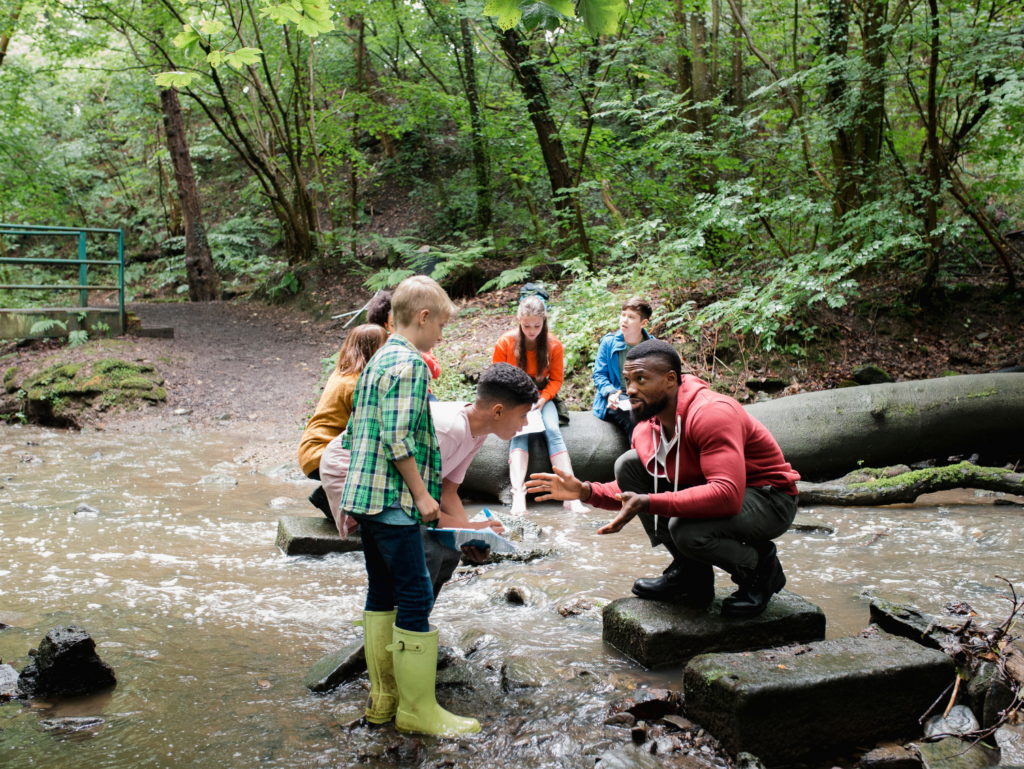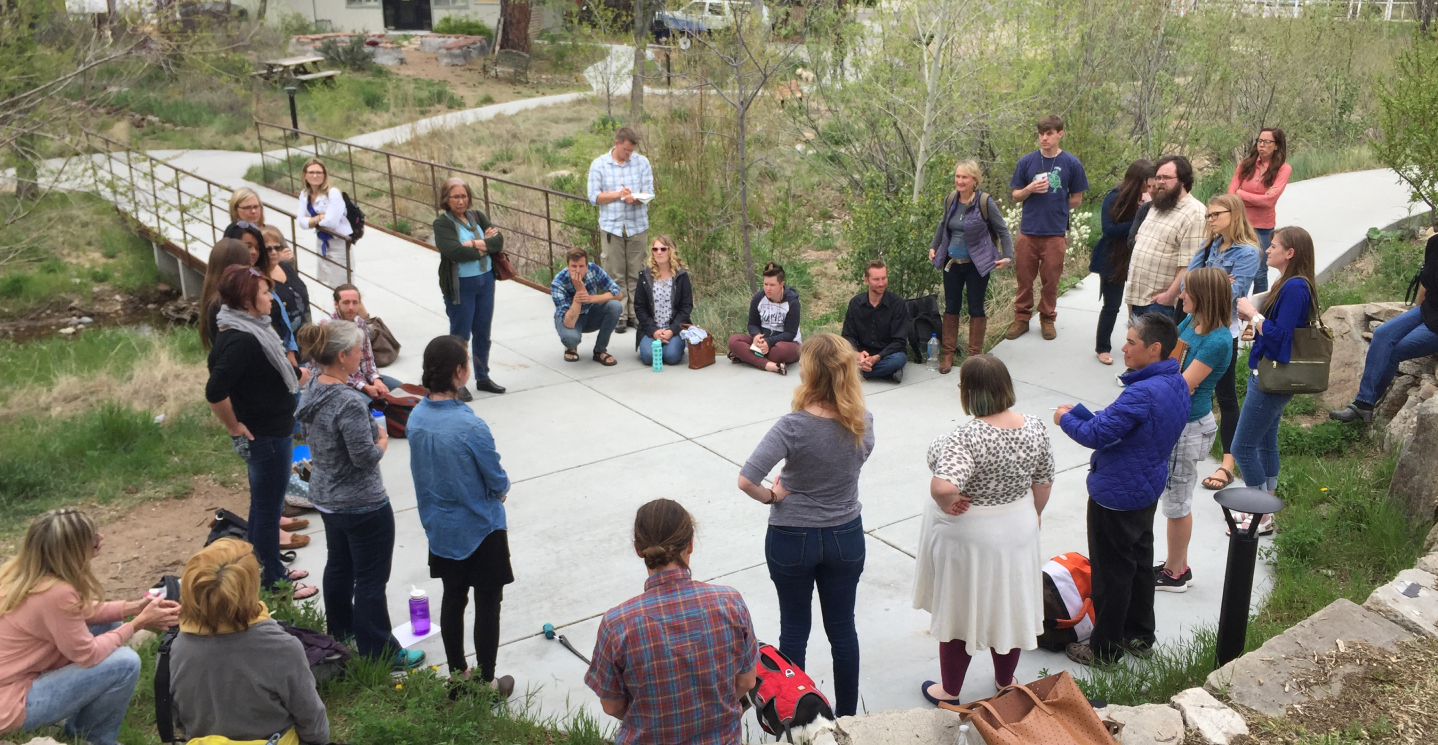
Environmental Studies and Sustainability MS
Why this program?
Students drawn to the MS in Environmental Studies and Sustainability degree are passionate about understanding, preserving, and restoring ecological systems, as well as adapting human societies to better reflect our dependence on those systems. They understand that both conservation and regenerative practices are rooted in managing the human impact on these systems. This is especially true as we make the transition to a rapidly warming climate.
What sets this degree apart from others is its distinctive bioregional approach to distance learning. Rooted in field-based education, this approach asks students to apply what they learn in each course to the specific places where they work and live. This emphasis on practical and local applications of knowledge enables students to make sense of their environments through multiple disciplinary frameworks, build connections with professionals working in their own regions, and learn about different ecological systems from classmates located around the US and beyond.
This program also serves students by designing courses to fit around their responsibilities at work and at home. Most instructors serving this program bring hands-on professional experience in their fields, in addition to their academic training, and the learning communities we build in our courses encourage more personal connections than students are likely to find in larger institutions.
What will this program look like?
The core courses in this degree provide students with a foundation for understanding local ecological systems, climate change, environmental attitudes across cultures, applied systems thinking, and essential skills in leadership and communication. Students can then focus more specifically through a variety of concentrations.
- Our concentration in Conservation Biology prepares students to conduct research and develop policies to protect and restore threatened habitats and populations.
- Our concentration in Resilience Planning and Climate Solutions prepares students to envision and plan communities, practices, and networks that are more sustainable, just, and regenerative.
While applying what they learn to the places where they live and work, our students acquire knowledge and professional skills that prepare them to make a difference, whether working in agencies and organizations, or continuing their research at the next level.
What can you do with a Master’s Degree in Environmental Studies?
Graduates of the program will be prepared to serve a variety of agencies at the municipal, county, state, and federal levels, as well as in nonprofit organizations that address issues of conservation and sustainability.
From wildlands conservation and ecological restoration to policy making and community-based education, our graduates are prepared to analyze challenges from a variety of perspectives, and to propose solutions based on careful research, stakeholder engagement, and a solid understanding of relevant policies and opportunities.
Our graduates have gone on to fulfilling careers, such as the positions listed below:
- Habitat Conservation Biologist, Montana Fish, Wildlife, and Parks
- Tribal Coordinator / Grants Project Officer, US EPA
- Science and Education Director, Whitefish Lake Institute
- Wilderness Ranger, Sitka National Forest
- Outdoor Recreation Planner, Bureau of Land Management
- Director, San Carlos Apache Dept. Environmental Protection
- Research Technician, Charles River Laboratories
- VP, Conservation and Climate Initiatives, Woodland Park Zoo
- Executive Director, Sleeping Bear Wildlife Fund
- Director, Agricultural Development Division, Vermont
- Wildlife Care Manager, Lake Metroparks
- Assistant Planning and Zoning Administrator, Stowe, VT
- Climate Editor, National Catholic Reporter
- Community Outreach Coordinator, Coconino Parks and Recreation
- Director of Communications and Outreach, Pacific Institute
- Founding Director, Save Ohio Bees
- Visitor Services Specialist, US Fish and Wildlife
- Conservation Organizer, Forest Keeper
- Grassroots Organizer, Healthy Environment Alliance of Utah
- Recovery Permit Coordinator, US Fish and Wildlife
- Managing Editor, Passenger Vessel Association
- Program Coordinator, Sloughhouse Resource Conservation District
- Director of Outreach, Community Food Initiatives
- Program Coordinator, Sloughhouse Resource Conservation District
- Outreach Coordinator, Blue Hill Heritage Trust
- Transportation Planner, Washington State DOT
- Development & Engagement Manager, Colorado Water Trust
- Sustainability Program Coordinator, City of Louisville, KY
- Program Manager, World Bank
- Environmental and Sustainability Specialist, Pacific Seafood
- Public Affairs Sustainability Analyst, UPS
- Manager, Homeless Outcomes and Data, Allegheny County, PA
- Project Director, Sustainability and Resilience, Tempe, AZ
- Solaris and Education Coordinator, Hudson River Maritime Museum
- Sustainability Coordinator, Bernalillo County, AZ
- Remedial Project Manager, US EPA
Available Concentrations
Agroecology & Biodiversity
Conservation Biology
Education for Social Justice
Innovative Entrepreunership
Environmental Education
Food Justice
Media & Communications
Organizational Leadership for Social Impact
Outdoor Education
Resilience Planning and Climate Solutions
Certificate
Key Program Information
Delivery Method
Online
Fall 2026 Application Deadlines
Priority Deadline – June 1
Regular Deadline – August 1
Admissions & Apply
- The MS in Environmental Studies and Sustainability begins with a core of eight courses that establish a foundation based in climate science, policy, ethics, history, ecology. and leadership.
- Students can choose to develop specific depth through their choice of concentration: Conservation Biology or Resilience Planning and Climate Solutions in collaboration with the program director. Your concentration will consist of 9 credits, combining required context courses and supporting electives.
- Students will also complete a Capstone Portfolio before graduating. This program is designed to be completed in two years.
- ENV57100 – Ecology, Culture, Community
- ENV57876 – Understanding Climate Change
- ENV57150 – Natural Systems Ecology and Restoration
- ENV58750 – Sustainability and Resistance Planning
- ENV50505 – Cross-Cultural Environmental History and Philosophy
- ENV51650 – Applied Systems Thinking
- ENV53100 – Water Resources and Management
- ENV56601 – Environmental Leadership and Communication
- COR57700 – Capstone
Build a solid foundation in systems thinking, environmental science, human ecology, leadership, and planning and policy, and show the capacity of these disciplinary areas to shape engagement with specific environmental challenges.
Demonstrate diverse and inclusive approaches to analyzing contemporary environmental and sustainability issues at local, regional, and global scales.
Apply a suite of sophisticated skills that incorporate theoretical knowledge into problem-solving on the ground.
Evaluate the particular challenges that communities face — environmental, social, and political — in becoming more sustainable and resilient, and to research and develop effective approaches for addressing these challenges.
- The Environmental Studies & Sustainability MS Program is accredited by the Higher Learning Commission of the North Central Association. The Higher Learning Commission has approved Prescott College to offer all of its degree titles via distance education.

ALUMNI SPOTLIGHT
Charlie Kloppenburg
Charlie Kloppenburg, who recently completed his degree with a concentration in Conservation Biology, has been accepted into the PhD program at Clemson University, working in Wildlife & Fisheries Biology through the Department of Forestry and Environmental Conservation! As part of his doctoral research, Charlie is researching wetland recovery in Idaho with the Coeur d’Alene Tribe’s Fish & Wildlife Division, funded by NOAA and The National Integrated Drought Information System.
Some of you may also remember his work teaching Water in the West with Dr. Joel Barnes in Prescott over the past couple of years. We wish Charlie all the best moving forward with this vitally important research!
Careers & Opportunities

Career Pathways
Our graduates go onto fulfilling careers of leadership in their communities and beyond, where they can lead the way to lasting change. Some careers include:
- Wildlife Biologist
- Wilderness Ranger
- Science and Education Director
- Regional Planner
- Wildlife Care Manager
- Visitor Services Specialist
- EPA Tribal Coordinator
- Resource Manager
- Environmental Science Educator
- Conservation Director
- Forest Service Researcher

Career Planning
Our Career Services team works with you to map out a plan that works for your goals and your life. There are many ways to get where you’re going, and we’ve seen it all!

Are you interested in being part of our community?
One thing we all have in common is our passion – passion for helping others, passion for the environment, passion for social justice and a passion for a different kind of learning experience.